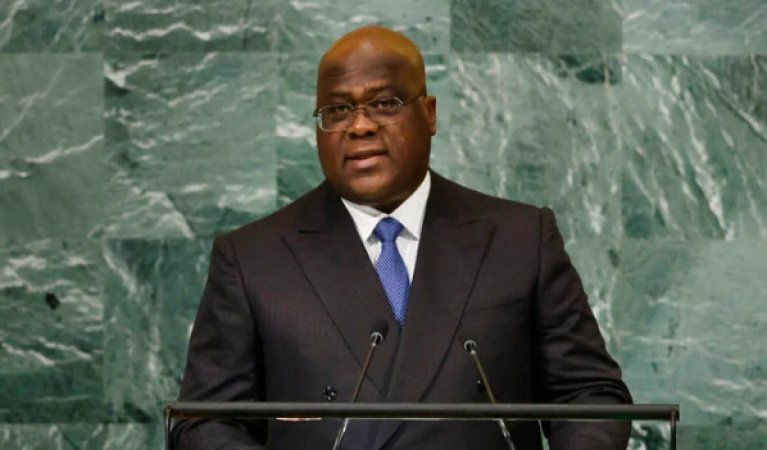
KINSHASA: The next presidential election in the Democratic Republic of the Congo will be held on December 20, 2023, according to the country's electoral commission on Saturday.
The announcement comes amid an onslaught of insurgents in the African country's restive east, displacing thousands of people. The chairman of the election commission said "persistent insecurity in some parts of the region" would make it difficult to maintain a "free, democratic and transparent" vote.
In the Democratic Republic of the Congo, presidential elections are held simultaneously with parliamentary, provincial and local elections.
In January 2024, the President-elect will take office.
Also Read: UN foresees that 500,000 more South Sudanese will require humanitarian assistance
President Felix Tshisekedi took office in January 2019, replacing Joseph Kabila after 18 years in power. This was the first peaceful transfer of power in the country.
He has already announced his intention to run for a second term, despite disagreement over the results. Other possible candidates include Martin Fayulu, the runner-up in the 2018 presidential election, who claims he was denied victory.
Former prime minister Adolphe Muzito and former governor of Katanga's southern region, Moise Katumbi, both seen as possible candidates, made no immediate announcements.
Another former premier, Augustin Matata Ponyo, has stated his intention to run. Ponyo went on trial last year on charges of embezzlement of public funds, but the constitutional court ruled that it lacked jurisdiction to hear his case.
The court order has since changed, and he has said he may prosecute him. Tshisekedi's inauguration ceremony in 2019 marked the end of more than two years of turmoil after Kabila refused to step down when his term under the constitution expired.
Kabila's previous two presidential elections, in 2006 and 2011, were marred by bloodshed, and dozens died in protests after he was elected to remain in office in 2016. The former colony of Belgium, roughly the size of continental Western Europe, experienced two regional wars in 1996–97 and 1998–2003.
After years of dormancy, the March 23 rebel group resurrected its arms in late 2021, claiming that the DRC failed to honor a pledge to arm its fighters, among other grievances. Stayed.
After four months of relative calm, the conflict flared up again on 20 October, when the rebels were advancing towards Goma.
Also Read: Trump was criticized for having dinner with a white nationalist
The fighting has strained relations between the DRC and Rwanda, with Kinshasa accusing its smaller neighbor of supporting the M23, as have UN experts and US officials. Kigali denies the allegations.
Tshisekedi and Rwandan Foreign Minister Vincent Biruta met in Angola on Wednesday and agreed on a ceasefire in the eastern DRC from Friday evening.
M23 rebels were ordered to leave "occupied territories", or an East African regional force would intervene.
Congolese Tutsi militia rebels said on Thursday that the ceasefire "doesn't really concern us" and called for "direct talks" with the DRC's government.
Also Read: British PM Rishi Sunak's daughter shows love for India, 'Family, Home, and Culture...'
On Saturday morning, the frontline appeared calm, but residents of eastern DRC were skeptical that this would continue.